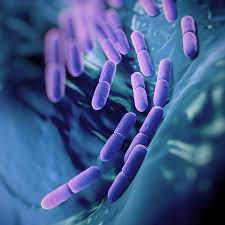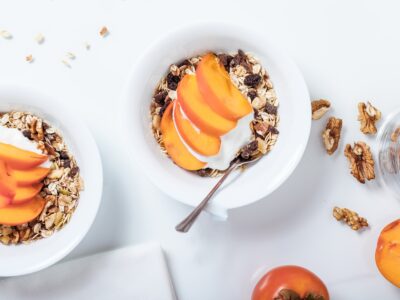Probiotics are a common sight in supermarkets and they’re becoming increasingly popular thanks to the growing interest in gut health. But how much do you really know about the role that probiotics can play in your health?
What are probiotics?
Probiotics are live “good” bacteria and yeasts that support the good bacteria that are naturally present in your gut.
Two of the most well-known probiotic strains are lactobacillus and bifidobacterium. Some probiotics contain multiple strains of bacteria.
Probiotics (and good bacteria in the gut) are boosted by prebiotics. Apples, bananas, onion, asparagus, beans and leeks are just some of the foods that are rich sources of prebiotics.
How probiotics support good health
Probiotics can support a healthy gut and help encourage more diversity in your gut
bacteria. Your gut contains trillions of bacteria that keep your body healthy. The balance of these bacteria can be disrupted by factors such as antibiotics, smoking, alcohol, eating an unhealthy diet and stress.
Ideally, the good bacteria in your gut should significantly outnumber the bad bacteria. Good bacteria help with digesting the food you eat, absorbing nutrients, maintaining a healthy weight, keeping inflammation in check and improving immunity (and it has a whole host of other roles in the body!).
If the bad bacteria gets the upper hand, the effects can go far beyond the gut. It can have knock-on effects on immunity, skin, and even mental health. Probiotics can restore balance in the gut by helping the good bacteria to thrive.
Probiotics can also help reduce inflammation levels in the body. If you have high levels of inflammation, it can affect digestion, increase intestinal permeability (aka leaky gut) and even disrupt insulin signalling.
Consuming probiotics regularly can help improve your gut health, ease allergies, increase immunity, improve skin conditions such as eczema and even support your mental health.
How to get more probiotics in your life
Fermented foods and drinks naturally contain probiotics. This includes sauerkraut, kimchi, miso, tempeh, kombucha and kefir. These days, a lot of products also have live cultures added to them, especially yoghurts. Adding these foods into your diet can help promote a healthy gut but they can also be high in salt too.
Probiotics need to be consumed regularly to get the biggest benefits. They don’t stick around in your gut so you need to keep replenishing them. It’s generally believed that probiotics are excreted from the body if they’re not being “topped up”.
If you don’t usually eat probiotic foods, try building them into your diet gradually. When you first start consuming more probiotics, you may notice some gas and bloating. This usually goes away once your body gets used to them and they start to support the good bacteria in your gut.
You may choose to take probiotic supplements, which contain more bacteria than probiotic foods or drinks. If you have low immunity or underlying health issues, check with your doctor before you start taking probiotic supplements.
Tips for choosing a probiotic:
When choosing a probiotic, there are a couple of things to look out for. Firstly, make sure that the probiotic contains enough bacteria. Secondly, check that the probiotic can survive in acidic conditions in the stomach. Not every probiotic will meet both of these criteria. Some strains of bacteria won’t stand up to the harsh environment in the digestive system, which also means they won’t bring many benefits. If you’re trying probiotics to see if they help a specific health issue, it’s worth doing your research into the strain(s) of bacteria that has the most potential to work well.
Studies have shown that different strains of bacteria affect the gut in diverse ways. Some strains may help with IBS symptoms, for example, but not all strains have demonstrated the ability to do this. If you take a probiotic that hasn’t shown the potential to help your particular issue, you probably won’t see great benefits. If you’re not sure what type of probiotic is your best bet, speak to a professional.
But having more bacteria doesn’t necessarily make a probiotic more effective. The crucial factor is whether the specific amount of bacteria in your probiotic has been proven to benefit human health.





